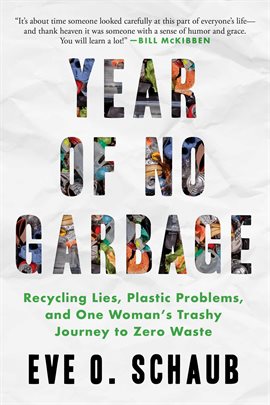
“History is written by the victors.”
-Winston Churchill (attributed)
What If… ?
The hallmark of sapience, from which we derive our taxonomic name homo sapiens, is hypothesis. The ability to plot possible effects from our choices is the greatest strength our enlarged frontal lobe grants us; to be able to plan for possibilities allows us to be proactive rather than relying on instinctual reaction. This intellectual capability leads to planning, planning leads to action, and the possible futures collapse into the single arc of cause and effect that makes up history.
Of course, this forethought can also be turned retrograde; it is a preeminent preoccupation of a hypothetical mind not to wonder about what has happened, but what could have happened. For most of the choices we make throughout life, though, this question is moot, as we cannot change what has already happened. Yet, we still delight in (or, perhaps, dread) this retroactive hypothesis to the point that there is an entire niche of stories that spans across fantasy, science fiction, and historical fiction that speculates on this very idea. What if we had, like Robert Frost’s much-misread poem, taken that road less traveled by? Continue reading “The Roads Less Traveled: A Survey of Speculative Fiction’s Alternate Histories”
Below I’m highlighting some nonfiction books coming out in April. All of the mentioned titles are available to put on hold in our catalog and will also be made available via the library’s Overdrive website on the day of publication in eBook and downloadable audiobook format (as available). For a more extensive list of new nonfiction books coming out this month, check our online catalog.
Top Picks
 “The Wide Wide Sea: Imperial Ambition, First Contact and the Fateful Final Voyage of Captain James Cook” by Hampton Sides (Apr 9)
“The Wide Wide Sea: Imperial Ambition, First Contact and the Fateful Final Voyage of Captain James Cook” by Hampton Sides (Apr 9)
On July 12, 1776, Captain James Cook, already lionized as the greatest explorer in British history, set off on his third voyage in his ship the HMS Resolution. Two-and-a-half years later, on a beach on the island of Hawaii, Cook was killed in a conflict with native Hawaiians. How did Cook, who was unique among captains for his respect for Indigenous peoples and cultures, come to that fatal moment? Hampton Sides’ bravura account of Cook’s last journey both wrestles with Cook’s legacy and provides a thrilling narrative of the titanic efforts and continual danger that characterized exploration in the 1700s. Cook was renowned for his peerless seamanship, his humane leadership, and his dedication to science — the famed naturalist Joseph Banks accompanied him on his first voyage, and Cook has been called one of the most important figures of the Age of Enlightenment. He was also deeply interested in the native people he encountered. In fact, his stated mission was to return a Tahitian man, Mai, who had become the toast of London, to his home islands. On previous expeditions, Cook mapped huge swaths of the Pacific, including the east coast of Australia, and initiated first European contact with numerous peoples. He treated his crew well, and endeavored to learn about the societies he encountered with curiosity and without judgment. Yet something was different on this last voyage. Cook became mercurial, resorting to the lash to enforce discipline, and led his two vessels into danger time and again. Uncharacteristically, he ordered violent retaliation for perceived theft on the part of native peoples. This may have had something to do with his secret orders, which were to chart and claim lands before Britain’s imperial rivals could, and to discover the fabled Northwest Passage. Whatever Cook’s intentions, his scientific efforts were the sharp edge of the colonial sword, and the ultimate effects of first contact were catastrophic for Indigenous people around the world. The tensions between Cook’s overt and covert missions came to a head on the shores of Hawaii. His first landing there was harmonious, but when Cook returned after mapping the coast of the Pacific Northwest and Alaska, his exploitative treatment of the Hawaiians led to the fatal encounter. Continue reading “Nonfiction Roundup: April 2024”
…for reading this blog; for being here, on the library’s website, for including us in your knowledge-seeking journeys, for participating in our community of library people, for sticking with me through this long-winded sentence… for trusting that I will eventually get to a point — one that will add value to your day, that will be worth the read (I will do my best); for engaging with the library’s content (We have so much to share with you!), for allowing us to be part of your lives, in ways big and small. Thank you!
 When’s the last time you wrote a thank you note? Maybe it was after a gathering, to thank people for their attendance or gifts. Maybe it was for work, as was the case for Gina Hamadey, whose story starts when she was tasked with handwriting individual thank you notes to fundraiser donors. Hamadey experienced something interesting while writing those notes: “I felt hopeful, optimistic, and present — a mood that would carry into my day.” She found the process so uplifting that she didn’t stop at the end of the work assignment. Instead she made a goal: to write one thank you note every day for a year, to incorporate gratitude into her life in a lasting way. So she did! And then she wrote a book about it: “I Want to Thank You: How a Year of Gratitude Can Bring Joy and Meaning in a Disconnected World.” Continue reading “I Want to Thank You”
When’s the last time you wrote a thank you note? Maybe it was after a gathering, to thank people for their attendance or gifts. Maybe it was for work, as was the case for Gina Hamadey, whose story starts when she was tasked with handwriting individual thank you notes to fundraiser donors. Hamadey experienced something interesting while writing those notes: “I felt hopeful, optimistic, and present — a mood that would carry into my day.” She found the process so uplifting that she didn’t stop at the end of the work assignment. Instead she made a goal: to write one thank you note every day for a year, to incorporate gratitude into her life in a lasting way. So she did! And then she wrote a book about it: “I Want to Thank You: How a Year of Gratitude Can Bring Joy and Meaning in a Disconnected World.” Continue reading “I Want to Thank You”
 As Spring arrives, so do new, great books, and they include some romance, mysteries and historical fiction. Check out these LibraryReads favorites from library staff across the country:
As Spring arrives, so do new, great books, and they include some romance, mysteries and historical fiction. Check out these LibraryReads favorites from library staff across the country:
 “How to Solve Your Own Murder” by Kristen Perrin
“How to Solve Your Own Murder” by Kristen Perrin
It’s 1965, and Frances is at a country fair with her friends when she ducks into a fortune teller’s tent and is given a fortune that predicts her murder. She then becomes obsessed with figuring out who will murder her. Many years later, when she sends for her great-niece, she starts a race against time for her murder to be solved. This novel is original, witty and a real page-turner.
~Linda Quinn, LibraryReads Ambassador Continue reading “March 2024 LibraryReads”
 The award-winning debut novel, “Weyward,” by Emilia Hart will be the subject of the First Thursday Book Discussion on April 4 at the Columbia Public Library.
The award-winning debut novel, “Weyward,” by Emilia Hart will be the subject of the First Thursday Book Discussion on April 4 at the Columbia Public Library.
Filled with vivid descriptions of English landscapes, Hart’s novel follows three women living between the 1600s and the 20th century. The protagonists face challenges that are both oddly conventional to their times and timeless. Likewise, Hart illustrates the resiliency of women and the strength they can draw from the natural world. Continue reading “April First Thursday Book Discussion: Weyward”

March marks the end of the first quarter of the year. How is your yearly resolution going? Did you make one? Does your new year start on January 1st? Or maybe on Lunar New Year (February 10, this year)? Or maybe on your birthday? It could start whenever you are ready to make a change — why wait? There are many examples of writers who have decided to take a year to try something different and record the results. We can live vicariously through their experiences and/or start our own adventures. Here are some books to get you started.
Possibly the queen of the “Year of…” genre is Eve Schaub. She is the author of “Year of No Sugar,” “Year of No Clutter” and, most recently, “Year of No Garbage.” In the latter, Schaub and her family attempt to live for a year without creating any garbage, and she learns a lot in the process. Her telling is, at times, funny, but it is also sobering to read about some of the ways people have spoiled the environment. Here is an excerpt from one of her blog posts:
Since I don’t buy new clothing at all anymore except for underwear (only used, consignment or vintage) I figure buying one bra from Australia is not going to kill any more polar bears than absolutely necessary. Plus, there’s the added benefit that when I am done with it years from now, it won’t contain plastic to poison the environment within some landfill for generations to come… In fact, ‘The Very Good Bra’ has a blog post with pics of their bra in a home worm farm, to demonstrate their ready compostability. You won’t find that at Victoria’s Secret. Continue reading “Literary Links: The Year Is Yours”
Often times, if I’m reading heavily in a particular genre, or on a theme, I’m aware of it and have gone out of my way to do so. Not this time! No, I suddenly realized after finishing the first book on this list that I had been reading a lot of King Arthur and Camelot retellings recently, and what were the chances? I decided I needed to continue the trend and in doing so, take some things off my to be read pile. And maybe I also needed to make a list of other King Arthur and Camelot books and retellings, because if there’s one thing I love, it’s a list. Now, join me around the Table of Some Shape and let’s read!
 “Gwen & Art Are Not in Love” by Lex Croucher is a young adult romance novel set hundreds of years after the time of King Arthur and his knights, but is still firmly in what we would consider medieval England. Our two POV characters are Gwendoline, a bit of a shut-in upright young woman, the daughter of the current king, sister of Gabriel the prince, and most unfortunately for her, betrothed to Arthur, our other POV. Arthur (Art to his friends), is a bit of a party animal, enjoys causing chaos for his father, and generally tries not to live up to his namesake. Besides their disparate personalities, why are these two not meant to be? Well, for starters, as the summer tournament begins, Gwen catches Art kissing a boy, and Art in turn finds Gwen’s diaries where she’s written about her feelings for the land’s only lady knight, Bridget Leclair. Slightly awkward. The two decide to keep one another’s secrets, and perhaps even help each other where they can. This book was funny, heartwarming, exciting and sweet. Continue reading “Let’s Not Go to Camelot; ‘Tis a Silly Place”
“Gwen & Art Are Not in Love” by Lex Croucher is a young adult romance novel set hundreds of years after the time of King Arthur and his knights, but is still firmly in what we would consider medieval England. Our two POV characters are Gwendoline, a bit of a shut-in upright young woman, the daughter of the current king, sister of Gabriel the prince, and most unfortunately for her, betrothed to Arthur, our other POV. Arthur (Art to his friends), is a bit of a party animal, enjoys causing chaos for his father, and generally tries not to live up to his namesake. Besides their disparate personalities, why are these two not meant to be? Well, for starters, as the summer tournament begins, Gwen catches Art kissing a boy, and Art in turn finds Gwen’s diaries where she’s written about her feelings for the land’s only lady knight, Bridget Leclair. Slightly awkward. The two decide to keep one another’s secrets, and perhaps even help each other where they can. This book was funny, heartwarming, exciting and sweet. Continue reading “Let’s Not Go to Camelot; ‘Tis a Silly Place”
Danielle Winton is a Columbia, MO memory & learning expert who has co-authored a book with
Tyler Small called “
Highly Promotable: .”
The book walks people through the three critical components of promotability: working well with others
, doing the right work, and doing the work well. Winton is the founder of Memory Strategies, where she teaches effective methods of learning and studying to students and professionals. She was kind enough to take the time to be interviewed via email.
Continue reading “Q&A With Danielle Winton, Co-author of “Highly Promotable””
Below I’m highlighting some nonfiction books coming out in March. All of the mentioned titles are available to put on hold in our catalog and will also be made available via the library’s Overdrive website on the day of publication in eBook and downloadable audiobook format (as available). For a more extensive list of new nonfiction books coming out this month, check our online catalog.
Top Picks
 “Double Click: Twin Photographers in the Golden Age of Magazines” by Carol Kino (Mar 5)
“Double Click: Twin Photographers in the Golden Age of Magazines” by Carol Kino (Mar 5)
The McLaughlin twins were trailblazing female photographers, celebrated in their time as stars in their respective fields, but have largely been forgotten since. Here, in “Double Click,” author Carol Kino provides us with a fascinating window into the golden era of magazine photography and the first young women’s publications, bringing these two brilliant women and their remarkable accomplishments to vivid life. Frances was the only female photographer on staff in Condé Nast’s photo studio, hired just after Irving Penn, and became known for streetwise, cinema verité-style work, which appeared in the pages of Glamour and Vogue. Her sister Kathryn’s surrealistic portraits filled the era’s new “career girl” magazines, including Charm and Mademoiselle. Both twins married Harper’s Bazaar photographers and socialized with a glittering crowd that included the supermodel Lisa Fonssagrives and the photographer Richard Avedon. Kino uses their careers to illuminate the lives of young women during this time, an early twentieth-century moment marked by proto-feminist thinking, excitement about photography’s burgeoning creative potential, and the ferment of wartime New York. Toward the end of the 1940s, and moving into the early 1950s, conventionality took over, women were pushed back into the home, and the window of opportunity began to close. Kino renders this fleeting moment of possibility in gleaming multi-color, so that the reader cherishes its abundance, mourns its passing, and gains new appreciation for the talent that was fostered at its peak. Continue reading “Nonfiction Roundup: March 2024”
2024 marks the 10th year of the Read Harder Challenge put on by the folks over at Book Riot, but this is my first year doing it! I decided there wasn’t enough going on this year, so I’ll read 24 books, and then share my thoughts on them every couple of months! So look forward to that! What is the Read Harder Challenge though? Well, according to the Book Riot website, “the challenge is made up of 24 tasks (an average of two per month) that invite readers to explore formats, genres, and perspectives that might go beyond their reading comfort zones. How you approach Read Harder is up to you: you can read one book per task or count one book for multiple tasks. The point of the challenge isn’t to do the thing one particular way but to push yourself to diversify your TBR.”
This sounds like a lot though, how is anyone meant to find 24 books that meet all these challenges? Luckily your local library is here to help! This is a collection of lists outlining the 2024 challenges along with library books that help meet those challenges! Need support or to check in with others undertaking the same goal? We have monthly check in programs at the library too, just check the events calendar for the next one! For my purposes though, I’ll be reading and discussing four books a month, and my challenges will be all over the place, starting with: Continue reading “Reading Harder in 2024! – Part 1”





